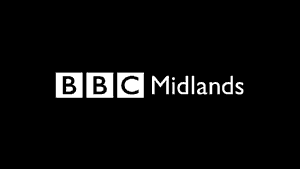
ITV, legally known as Channel 3, is a British free-to-air public broadcast television network. It is branded as ITV1 in most of the UK except for central and northern Scotland, where it is branded as STV. It was launched in 1955 as Independent Television to provide competition, eliminating what had hitherto been the monopoly of BBC Television. ITV is the oldest commercial network in the UK. Since the passing of the Broadcasting Act 1990, it has been legally known as Channel 3 to distinguish it from the other analogue channels at the time: BBC1, BBC2 and Channel 4.
Television broadcasts in the United Kingdom began in 1932, however, regular broadcasts would only begin four years later. Television began as a public service which was free of advertising, which followed the first demonstration of a transmitted moving image in 1926. Currently, the United Kingdom has a collection of free-to-air, free-to-view and subscription services over a variety of distribution media, through which there are over 480 channels for consumers as well as on-demand content. There are six main channel owners who are responsible for most material viewed.

Independent Television News (ITN) is a UK-based media production and broadcast journalism company. ITN is based in London, with bureaux and offices in Beijing, Brussels, Jerusalem, Johannesburg, New York, Paris, Sydney and Washington, D.C.

BBC Radio 3 is a British national radio station owned and operated by the BBC. It replaced the BBC Third Programme in 1967 and broadcasts classical music and opera, with jazz, world music, drama, culture and the arts also featuring. The station describes itself as "the world's most significant commissioner of new music", Through its New Generation Artists scheme promotes young musicians of all nationalities. The station broadcasts the BBC Proms concerts, live and in full, each summer in addition to performances by the BBC Orchestras and Singers. There are regular productions of both classic plays and newly commissioned drama.

BBC Television is a service of the BBC. The corporation has operated a public broadcast television service in the United Kingdom, under the terms of a royal charter, since 1927. It produced television programmes from its own studios from 1932, although the start of its regular service of television broadcasts is dated to 2 November 1936.

ITV Border, previously Border Television and commonly referred to as simply Border, is the Channel 3 service provided by ITV Broadcasting Limited for the England/Scotland border region, covering most of Cumbria and Dumfries and Galloway, the Scottish Borders and parts of Northumberland. The TV service previously covered the Isle of Man from 26 March 1965 until 15 July 2009.

BBC Midlands is the BBC English Region producing local radio and web content for the City of Birmingham, West Midlands, Herefordshire, Shropshire, Staffordshire, Warwickshire, Worcestershire and parts of Gloucestershire. Although the region has been unofficially called BBC West Midlands since BBC East Midlands became a separate region in 1991, it retains the BBC Midlands name and brand, with its history dating from 1927, for public use.
This is a timeline of the history of the British Broadcasting Corporation.
What The Papers Say is a British radio and television series. It consists of quotations from headlines and comment pages in the previous week's newspapers, read in a variety of voices and accents by actors. The quotes are linked by a script read by a studio presenter, usually a prominent journalist. The show did not have a regular host, and was intended as a wry look at how British broadsheets and tabloids covered the week's news stories. The programme was most recently broadcast on BBC Radio 4.
Religious broadcasting, sometimes referred to as faith-based broadcasts, is the dissemination of television and/or radio content that intentionally has religious ideas, religious experience, or religious practice as its core focus. In some countries, religious broadcasting developed primarily within the context of public service provision, whilst in others, it has been driven more by religious organisations themselves. Across Europe and in the US and Canada, religious broadcasting began in the earliest days of radio, usually with the transmission of religious worship, preaching or "talks". Over time, formats evolved to include a broad range of styles and approaches, including radio and television drama, documentary, and chat show formats, as well as more traditional devotional content. Today, many religious organizations record sermons and lectures, and have moved into distributing content on their own web-based IP channels.

There are several different types of mass media in the United Kingdom: television, radio, newspapers, magazines and websites. The United Kingdom is known for its large music industry, along with its new and upcoming artists. The country also has a large broadcasting, film, video games and book publishing industries.
Television in Scotland mostly consists of UK-wide broadcasts, with regional variations at different times which are specific to Scotland. The BBC and ITV networks both began broadcasting in the country during the 1950s. There were further expansions in the early 1960s with the arrival of Grampian, Border and BBC2 television.

BBC North West is the BBC English Region serving Cheshire, Greater Manchester, Lancashire, Merseyside, North Yorkshire, Derbyshire, Staffordshire (Biddulph), Cumbria and the Isle of Man.
This is a timeline of the history of breakfast television in the United Kingdom.
This is a timeline of the history of the British broadcaster Scottish Television. It provides the ITV network service for Central Scotland.
This is a timeline of the former British television broadcaster Associated Television (ATV). It provided the ITV service for London at weekends and the Midlands on weekdays from 1955 to 1968, and for the Midlands all week from 1968 to 1982.
This is a timeline of television in Scotland.
A timeline of notable events relating to BBC Television News.
This is a timeline of the history of television news in the UK.
This is a timeline of overnight television broadcasting in the United Kingdom. It focuses on programming between midnight and 6am and includes details of when channels began into the night and 24-hour broadcasting.








